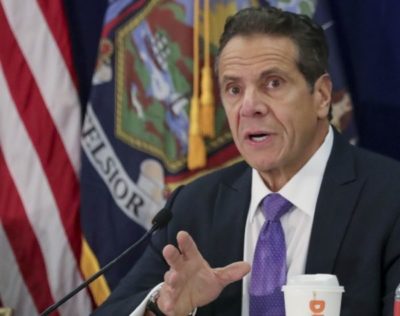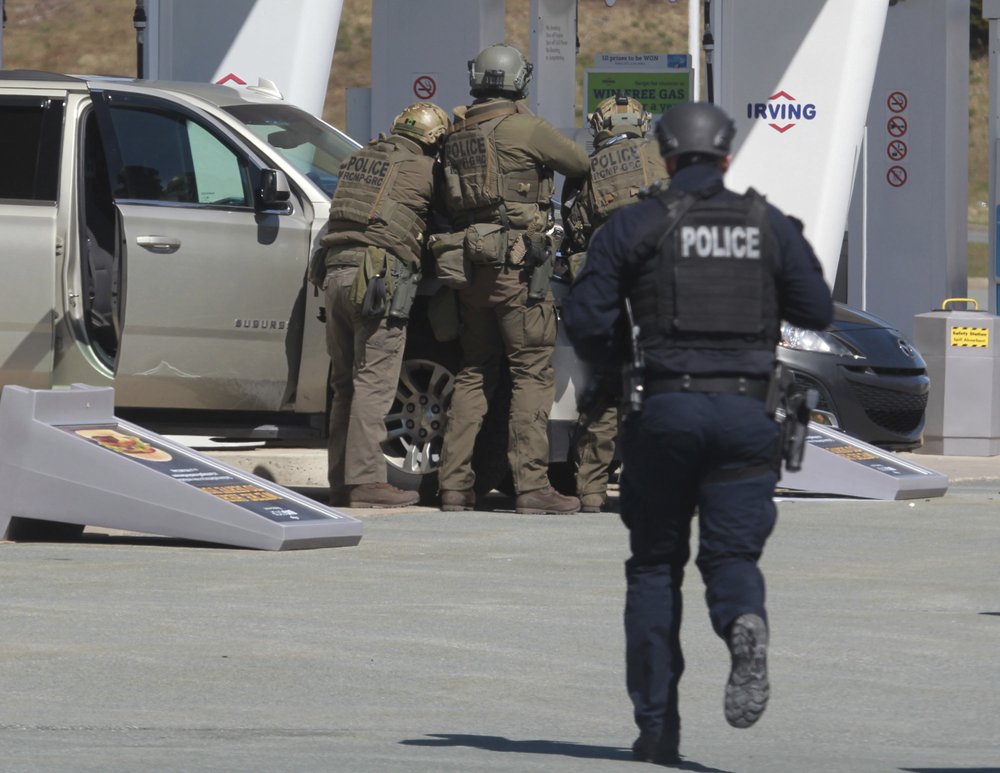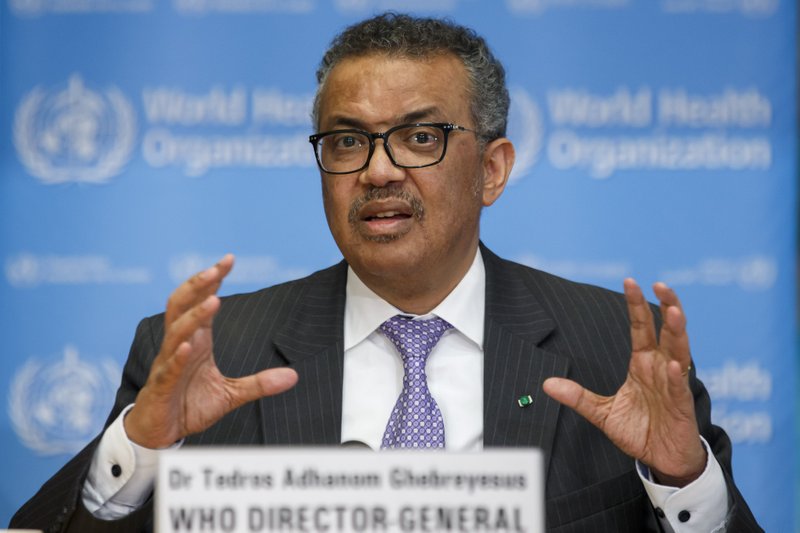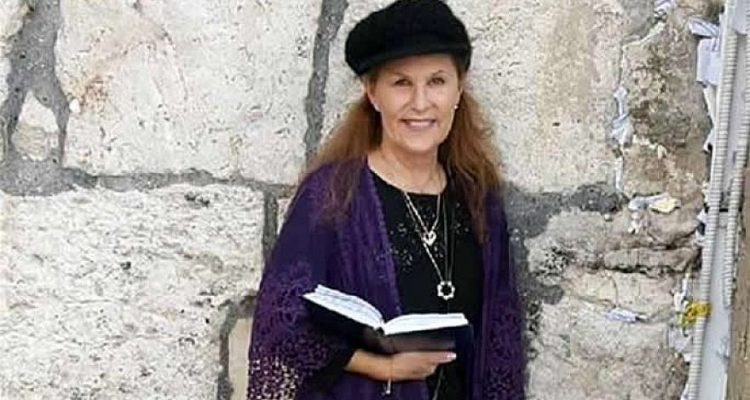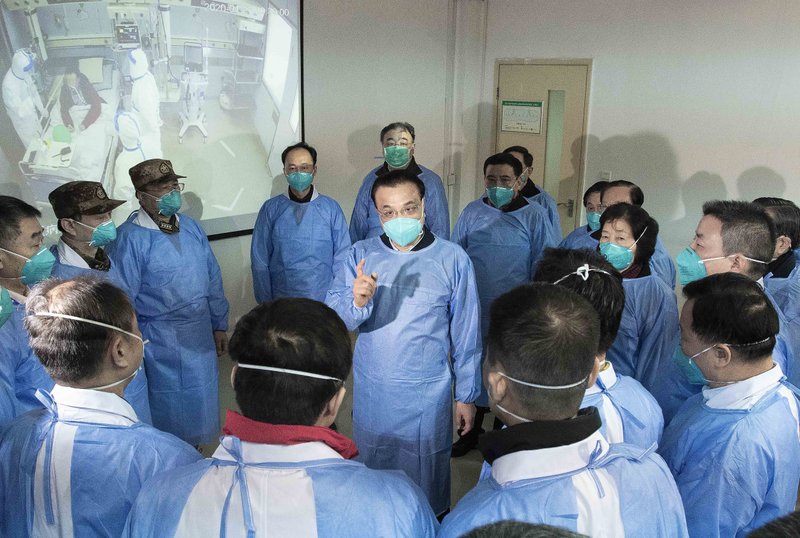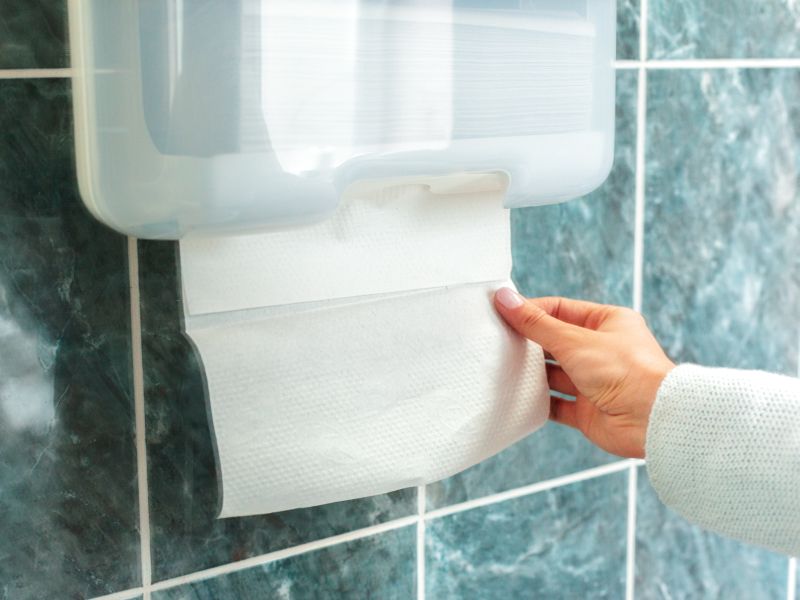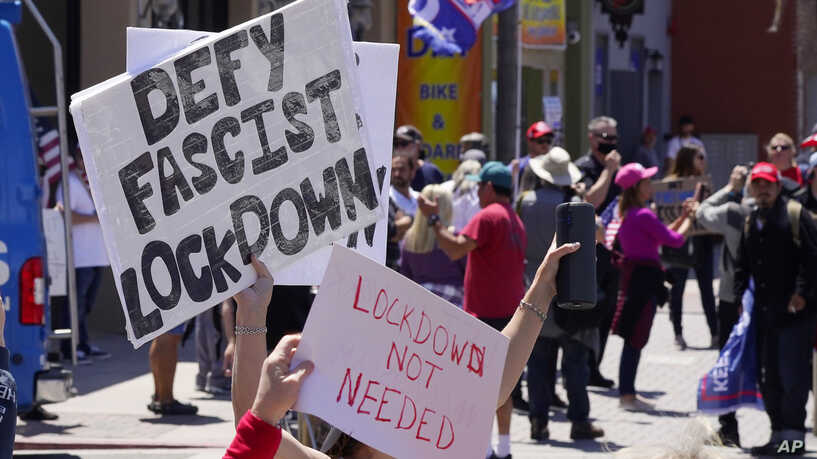By: Soeren Kern
The director general of the World Health Organization (WHO), Tedros Adhanom Ghebreyesus, is facing increased scrutiny over his handling of the coronavirus pandemic, which has infected more than two million people around the world and killed at least 150,000.
Adhanom, who goes by the name Tedros, is an Ethiopian microbiologist who, with the help of China, began a five-year term as head of the WHO in July 2017. He has been accused of misrepresenting the severity and spread of the coronavirus in an attempt to pander to China.
The historical record shows that Tedros, the first African and the first non-physician to lead the WHO, has a long history of covering up epidemics and human rights abuses in Ethiopia, where he served as the minister of health and minister of foreign affairs.
In May 2017, when Tedros emerged as the top candidate in a three-way race to lead the WHO, the New York Times reported accusations that Tedros covered up three cholera epidemics in Ethiopia when he was the country’s health minister between 2005 and 2012.
Tedros claimed that cholera outbreaks occurring in 2006, 2009 and 2011 were only “acute watery diarrhea” — an infectious disease known in the rest of the world as cholera. He said that the outbreaks were limited to remote areas of the country where laboratory testing was “difficult” and that international concerns were overblown. The epidemics eventually reached neighboring countries including Kenya, Somalia and Sudan. The New York Times explained:
“WHO officials have complained privately that Ethiopian officials are not telling the truth about these outbreaks. Testing for Vibrio cholerae bacteria, which cause cholera, is simple and takes less than two days.
“During earlier outbreaks, various news organizations, including The Guardian and The Washington Post, reported that unnamed Ethiopian officials were pressuring aid agencies to avoid using the word ‘cholera’ and not to report the number of people affected.
“But cholera bacteria were found in stool samples tested by outside experts. As soon as severe diarrhea began appearing in neighboring countries, the cause was identified as cholera.
“United Nations officials said more aid could have been delivered to Ethiopia had the truth been told.”
The director of the O’Neill Institute for National and Global Health Law at Georgetown University, Lawrence O. Gostin, said that he called attention to Ethiopia’s long history of denying cholera outbreaks because he believed the WHO “might lose its legitimacy” if it is run by a representative of a country that itself covers up epidemics.
“Dr. Tedros is a compassionate and highly competent public health official,” Gostin told the New York Times. “But he had a duty to speak truth to power and to honestly identify and report verified cholera outbreaks over an extended period.”
Tedros dismissed the accusations against him by playing the race card. He said that criticism of him stemmed from a “typical colonial mind-set aimed at… discrediting a candidate from a developing country.”
The Guardian reported that the Ethiopian government has been reluctant to acknowledge the cholera outbreaks “for fear of damaging the economy.” The Washington Post explained that Ethiopian authorities have a propensity for refusing to call bad news by its real name:
“Acute watery diarrhea [AWD] is a potentially fatal condition caused by water infected with the Vibrio cholera bacterium. Everywhere else in the world it is simply called cholera.
“But not in Ethiopia, where international humanitarian organizations privately admit that they are only allowed to call it AWD and are not permitted to publish the number of people affected.
“The government is apparently concerned about the international impact if news of a significant cholera outbreak were to get out, even though the disease is not unusual in East Africa.
“This means that, hypothetically, when refugees from South Sudan with cholera flee across the border into Ethiopia, they suddenly have AWD instead.”
In a similar manner, when international aid groups in 2016 sounded alarm bells over the lack of rain, Ethiopian authorities, including Tedros, were divided over whether they should call it a drought. The Post reported:
“The narrative for Ethiopia in 2015 was a successful nation with double-digit growth, and the government did not want to bring back memories of the 1980s drought that killed hundreds of thousands and left the country forever associated with famine.
“‘We don’t use the f-word,’ explained an aid worker… referring to famine.”
Similar allegations of cover-up were reported while Tedros was Ethiopia’s foreign minister between 2012 and 2016. In October 2016, for instance, Tedros wrote in a blog post that he opposed efforts by Human Rights Watch to force Ethiopia to accept an international investigation into the way the government responded to anti-government protests.
The protests began in November 2015 due to public anger over the government’s heavy-handedness. They escalated in October 2016, when government security forces fired on a large crowd of festival-goers. The protests, which eventually spread across the country, left hundreds of people dead and tens of thousands detained.
Tedros’s cover-ups continued after he became the director general of the WHO. In September 2017, a group of American physicians, in an open letter addressed to Tedros, accused him of failing to investigate outbreaks of cholera in Sudan:
“The mandate of the UN’s World Health Organization (WHO) could hardly be clearer; in the words of the Organization: ‘Our primary role is to direct and coordinate international health within the United Nations’ system. Our goal is to build a better, healthier future for people all over the world. Working through offices in more than 150 countries, WHO staff work side by side with governments and other partners to ensure the highest attainable level of health for all people.’
“And yet this impressive mandate is daily made a mockery of by WHO’s refusal to refer to the cholera epidemic raging in Sudan by name. Neither your organization nor the UN’s Office for the Coordination of Humanitarian Affairs will refer explicitly to the fact that what you continue to call “Acute Watery Diarrhea” is in fact cholera, Vibrio cholera — a fact established by laboratory tests in Sudan….
“To be sure, the Khartoum regime has made clear that it will punish Sudanese journalists and health officials who dare to use the word ‘cholera,’ and no doubt threats have been issued to WHO, demanding that you be complicit in silence about this terrible disease. The regime’s motive is transparently a desire that the ‘reputation’ of Sudan not be compromised by associations the regime perceives would inhere in any accurate designation of a disease that is clearly out of control. But the effect of WHO’s silence is to ensure that Sudan has not received international medical resources necessary to combat cholera — preeminently massive supplies of re-hydration equipment; medical epidemiologists as well as specialists in treating cholera epidemics; and water/sanitation equipment and engineers.
“By yielding to the Khartoum’s regime’s threat, you are complicit in the failure to respond to a disease that currently threatens many hundreds of thousands of Sudanese civilians — and is currently active in twelve Sudanese states….
“Your silence about what is clearly a massive cholera epidemic in Sudan is reprehensible. Your failure to transport stool samples from victims in Sudan to Geneva for official confirmation of cholera makes you fully complicit in the terrible suffering and dying that continues to spread, out of control, with daily new reports confirming that this is indeed a cholera epidemic.
“The inevitable history that will be written of this epidemic will surely cast you in an unforgiving light.”
In October 2017, Tedros appointed the late Robert Mugabe, the authoritarian leader of Zimbabwe, as a UN Goodwill Ambassador. Tedros had praised Zimbabwe as “a country that places universal health coverage and health promotion at the center of its policies to provide health care to all.” After global outrage, Tedros rescinded the appointment.
Writing for the Sunday Times, Rebecca Myers wrote:
“Diplomats said [Mugabe’s] appointment was a political payoff from Tedros Adhanom Ghebreyesus — the WHO’s first African director-general — to China, a long-time ally of Mugabe, and the 50 or so African states that helped to secure Tedros’s election earlier this year…
“Chinese diplomats had campaigned hard for the Ethiopian, using Beijing’s financial clout and opaque aid budget to build support for him among developing countries.”
Columnist Frida Ghitis, writing for The Washington Post added:
“The WHO director’s decision to honor the dictator is a misjudgment of breathtaking proportions. The stain it has left on the WHO will not be easily cleansed. We must find out what was behind it. If an investigation proves that giving this prestigious appointment to a brutal human rights violator was the result of corruption, Tedros must leave. In fact, Tedros’s tenure should already be regarded as probationary, and his judgment in question….
“Some speculate that Tedros’s decision to appoint Mugabe was a pay-off to China, which worked tirelessly behind the scenes to help Tedros defeat the United Kingdom candidate for the WHO job, David Nabarro. Tedros’s victory was also a victory for Beijing, whose leader Xi Jinping has made public his goal of flexing China’s muscle in the world.”
In July 2018, China Global Television Network (CGTN), a state-owned media outlet, reported that Tedros had met with Chinese Foreign Minister Wang Yi in Beijing. It was Tedros’s second visit to China since he took over as the director general of WHO. CGTN stated:
“The Chinese state councilor [Wang Yi] went on to say that healthcare was an important part of global governance and China’s national development strategy. He said Beijing was willing to deepen cooperation with the WHO under a number of initiatives, such as their joint ‘Health Silk Road’ project, various China-Africa health development plans, as well as the organization’s five-year action plan for health, employment and inclusive economic growth.
“Dr. Tedros welcomed Wang’s comments, saying their enhanced cooperation would improve health standards in countries involved in the Belt and Road Initiative.”
As Ethiopia’s foreign minister, Tedros, an executive member of the Marxist-Leninist Tigray People’s Liberation Front (TPLF), oversaw a massive expansion of China’s role in Ethiopia. China is Ethiopia’s biggest foreign investor, its largest trading partner and also its largest lender.
Writing for Politico, Simon Marks explained:
“Over the course of the last decade, Ethiopia has become increasingly dependent on Chinese investment.
“The Export-Import Bank of China put up $2.9 billion of the $3.4 billion railway project connecting Ethiopia to Djibouti, providing the landlocked country access to ports. Chinese funds were also instrumental in the construction of Ethiopia’s first six-lane highway — an $800 million project — the metro system, and several skyscrapers dotting Addis Ababa’s skyline.
“Beijing also accounts for nearly half of Ethiopia’s external debt and has lent at least $13.7 billion to Ethiopia between 2000 and 2018, data compiled by John Hopkins University School of Advanced International Studies shows.”
Ethiopia is now ensnared in a debt trap that leaves the country vulnerable to pressure from Beijing.
On April 15, President Trump announced that he will withhold funding to the WHO while his administration reviews the group’s “mismanagement, cover-ups, and failures” related to the pandemic. The United States is the WHO’s largest donor, providing approximately $900 million for the two-year budget cycle of 2018 and 2019.
In a statement, the White House said that the WHO “has longstanding structural issues that must be addressed before the organization can be trusted again.” It added that the WHO was “vulnerable to misinformation and political influence” and that measures were needed to “counter China’s outsized influence on the organization.”
That same day, members of the U.S. Senate demanded that the WHO provide information, records and documents regarding the origins of the coronavirus as part of a larger investigation into the global response to the pandemic.
In a letter to Tedros, Homeland Security Committee Chairman Ron Johnson and other Republican Senators requested a sweeping list of materials regarding what they called “WHO’s failed and delayed response to the Coronavirus.”
Meanwhile, an online petition calling for Tedros’s immediate resignation neared one million signatures. The petition, posted on the Change.org website, states: “We strongly think Tedros Adhanom Ghebreyesus is not fit for his role as WHO Director General.”
Timeline of WHO’s Efforts to Pander to China
Several media outlets have published timelines of Chinese efforts to conceal the extent of the coronavirus from the rest of the world (here, here, here and here). Following is an abbreviated timeline of Tedros’s complicity with China:
December 30. Li Wenliang, a 34-year-old doctor, sounded the alarm about a new coronavirus outbreak in Wuhan, China. Li sent a message to a group of other doctors warning that seven patients had been quarantined at Wuhan Central Hospital after coming down with a respiratory illness that seemed like the SARS coronavirus. The police in Wuhan subsequently reprimanded and silenced Li, requiring him to sign a letter acknowledging that he was making “false comments.”
December 31. Taiwan contacted the WHO after seeing Li’s reports of human-to-human transmission of the coronavirus in Wuhan, but the WHO kept it from the public.
January 1. An employee of a genomics company in Wuhan received a phone call from an official at the Hubei Provincial Health Commission, ordering the company to stop testing samples from Wuhan related to the new disease and to destroy all existing samples.
January 3. China’s National Health Commission (NHC), the nation’s top health authority, ordered institutions not to publish any information related to the unknown disease, and ordered labs to transfer any samples they had to designated testing institutions, or to destroy them.
January 9. China identified the new coronavirus as the cause of a mystery disease in Wuhan.
January 14. WHO tweeted: “Preliminary investigations conducted by the Chinese authorities have found no clear evidence of human-to-human transmission of the novel #coronavirus.” A day earlier, WHO had reported the first case outside of China — in Thailand.
January 20. China confirmed human-to-human transmission of new coronavirus.
January 21. The U.S. Centers for Disease Control and Prevention (CDC) confirmed the first case of coronavirus in the United States in the state of Washington. The patient had recently returned from Wuhan.
January 23. Wuhan, a city of 11 million, was placed in lockdown. China closed all internal transit from Wuhan to other cities in China, but did nothing to stop international flights.
January 28. Tedros praised China’s “transparency” regarding the virus.
January 30. Tedros visited China and praised the country’s leadership for “setting a new standard for outbreak response.” He also declared the coronavirus outbreak a public health emergency of international concern.
January 31. The Trump Administration announced travel restrictions to and from China, effective February 2.
February 4. Tedros rebuked President Trump’s travel restrictions, saying that they “can have the effect of increasing fear and stigma, with little public health benefit.”
February 7. Doctor Li Wenliang, the coronavirus whistleblower, died in Wuhan after being infected with the virus. His death sparked an outpouring of grief and anger online in China.
February 14. Tedros said that WHO was “seeking clarity on how clinical diagnoses are being made so that other respiratory illnesses, including influenza, are not getting mixed into the COVID-19 data.” He also warned against criticizing China: “This is the time for solidarity, not stigma.”
February 28. WHO, in a 40-page report, praised China’s response to COVID-19: “China’s bold approach to contain the rapid spread of this new respiratory pathogen has changed the course of a rapidly escalating and deadly epidemic.”
March 11. Tedros finally declared the coronavirus outbreak a pandemic: “We expect to see the number of cases, the number of deaths, and the number of affected countries climb even higher.”
March 18. An executive director of WHO, Mike Ryan, criticized President Trump: “We need to be careful of the language we use lest it lead to profiling. The pandemic flu of 2009 started in North America, and we didn’t call it the North American flu. This is a time to move forward and fight the virus together. Viruses know no borders and they don’t care about your ethnicity, the color of your skin or how much money you have in the bank.”
March 20. Tedros said that Wuhan reported no new cases of coronavirus.
March 29. Ai Fen, a Wuhan doctor who was among the first to alert other medics to the spread of coronavirus, disappeared amid concerns that she had been detained by Chinese authorities. Her whereabouts are unknown.
April 8. A day after U.S. President Donald Trump accused the WHO of being “very China-centric,” and threatened to cut funding to WHO, Tedros responded: “Please quarantine politicizing COVID. We will have many body bags in front of us if we don’t behave.” Tedros also said that criticism of his handling of the coronavirus pandemic was motivated by racism.
April 16. A second wave of Covid-19 erupted in the northern Chinese city of Harbin. (Gatestone Institute)
Soeren Kern is a Senior Fellow at the New York-based Gatestone Institute.

